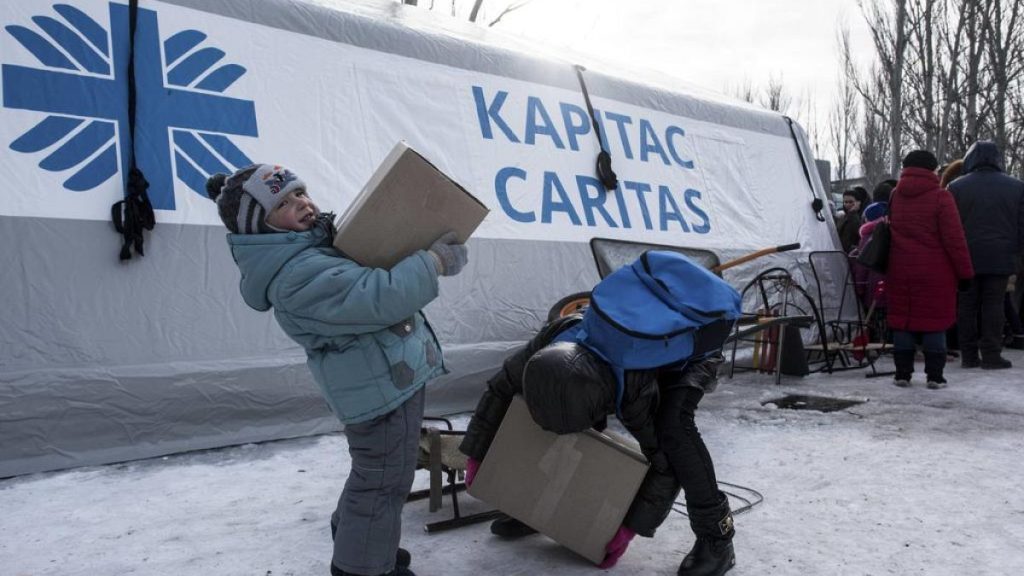The EU’s Stance on Humanitarian Aid Amidst Global Challenges
The European Union has reaffirmed its commitment to humanitarian aid, emphasizing that it remains a steadfast donor on the global stage. In response to the recent cuts in U.S. foreign assistance under President Donald Trump, the EU has acknowledged the growing funding gap but has clarified that it cannot solely compensate for the loss. The European Commission stated, "The EU cannot fill this gap left by others," highlighting the need for a collective international response to address the escalating global needs. The EU has pledged to continue its humanitarian efforts, focusing on saving lives and alleviating suffering worldwide. However, the Commission underscored the importance of shared responsibility among the international community, warning that the widening funding gap poses severe challenges for millions in need.
The Impact of USAID Cuts on Global Humanitarian Efforts
The Trump administration’s decision to dismantle the United States Agency for International Development (USAID) has had far-reaching consequences for international development projects. Since President Trump took office on January 20, he has temporarily frozen all foreign assistance and dismissed hundreds of USAID employees. This agency plays a critical role in improving health, reducing poverty, and promoting human rights and democracy in low-income countries. The cuts have disrupted numerous humanitarian projects, including those supporting Ukrainians affected by the Russian war of aggression. Disability NGOs in the Balkans and Eastern Europe have been particularly hard-hit, with their work being severely impacted due to the abrupt halt in funding.
Disability NGOs Urge the EU for Emergency Aid
Disability NGOs in Eastern Europe and the South Caucasus are sounding the alarm, urging the European Union to provide emergency funding to mitigate the devastating impact of the U.S. aid cuts. These organizations, which provide essential support to people with disabilities, are facing a crisis as their projects grind to a halt due to the lack of resources. Thomas Bignal, secretary general of the European Association of Service Providers for Persons with Disabilities, warned that the cuts go beyond mere project financing, undermining the ability of civil society organizations to provide long-term support. This, he argued, risks dismantling the entire support system for vulnerable populations. Alongside the European Disability Forum and groups in countries such as Albania, Ukraine, and Georgia, these NGOs are calling on the EU to step in with emergency aid.
The Human Cost of Aid Cuts: Stories from the Ground
The consequences of the U.S. aid cuts are not just bureaucratic or financial; they have real and dire implications for individuals and communities. Among the affected projects is the "League of the Strong," an organization supporting people with disabilities in wartime Ukraine. A U.S.-funded program allocated $373,303 between 2024 and 2026 to assist 570 individuals in the Ukrainian regions of Chernihiv, Kirovohrad, and Kharkiv. This program provided critical support, including assistive devices, digital training, and legal aid. Another initiative, aimed at supporting 450 war veterans with disabilities in Ukraine, has been paused due to a lack of alternative funding. These examples highlight the human cost of aid cuts, leaving some of the most vulnerable populations without the support they desperately need.
The Call for Disability Inclusion in EU Humanitarian Aid
Disability advocates are not only seeking emergency funding but also urging the EU to ensure that disability inclusion is mainstreamed into all humanitarian aid and funding mechanisms. Gunta Anca, vice-president of the European Disability Forum, emphasized the urgent need for solidarity, stating, "This chaos endangers the lives of persons with disabilities in Eastern Europe and South Caucasus. The EU must step up to save their lives and ensure that this absence of solidarity doesn’t open the doors for others to exploit their vulnerability." Advocates are also calling on the EU to influence national governments to increase their support for affected regions, ensuring that no one is left behind.
A Global Call to Action: The Need for Collective Responsibility
The European Commission has reiterated that the EU remains committed to its humanitarian commitments, but the scale and complexity of current global challenges demand a joint response. "Everyone in the international community must shoulder their responsibility," a Commission spokesperson declared, stressing that the funding gap must be addressed collectively. As disability NGOs struggle to cope with the fallout from U.S. aid cuts, the EU is being called upon to lead by example, ensuring that disability inclusion is at the heart of its humanitarian efforts. The crisis unfolding in Eastern Europe and beyond serves as a stark reminder of the importance of global solidarity and the need for a coordinated response to protect the most vulnerable populations. The EU, alongside other international actors, must rise to the challenge, ensuring that the gap left by others is not a death sentence for those who depend on this vital support.












